- Tire Technology Expo 2025
- Tony Robinson
- Deutsche Messe
- Hannover
- Bekaert
- Rockwell Automation
- VMI Group
- HF Group
- ARP Technologies
- Synthos
- Nynas
- Schill+Seilacher “Struktol” GmbH
- Kordsa
- Black Donuts
- Continental
- Bridgestone
- Claire Fiioretti
- European Sustainability Product Regulation
- Rockwell Automation
- Adam McCarthy
- ETRMA
Global Tyre Industry Converges In Hannover For Technology Exhibition
- By TT News
- April 28, 2025
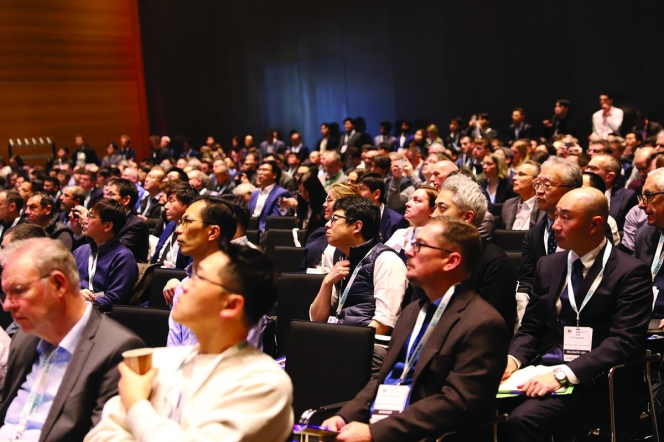
The global tyre industry’s top manufacturers and technology suppliers met at the Tire Technology Expo 2025 in Hannover on 4-6 March to unveil technologies focused on driving sustainability, digitalisation and road safety. At the Deutsche Messe, the exhibition featured advances in tyre engineering, materials science and manufacturing technologies that will define mobility in the future.
In opening the event, expo founder Tony Robinson called on manufacturers to close the knowledge gap with consumers, highlighting how most drivers undervalue the importance of tyres in ensuring a vehicle’s safety. He mentioned that safety rests on the four small ‘footprints’ of rubber linking a car to the road, which tends to be undervalued by the general driver.
Looking to the future, Robinson saw a day when tyres contain sensors that share real-time information with other cars and roadside infrastructure. These sensors could warn drivers of dangerous road conditions like flooding or new potholes, making roads safer and avoiding crashes. He predicted that information from tyres could also feed into weather forecasting services, providing useful real-time information on road conditions.
The exhibition floor showcased innovation and high-performance solutions from more than 240 exhibitors, with Bekaert, Rockwell Automation, VMI Group, HF Group, ARP Technologies, Synthos, Nynas, Schill+Seilacher “Struktol” GmbH, Kordsa, Black Donuts and others.
SUSTAINABILITY AND MATERIAL INNOVATION TAKE CENTRE STAGE
The expo also reflected the tyre industry’s growing focus on sustainability, with manufacturers launching new materials and processes to lower environmental impact. Bekaert launched its Mega Tensile reinforcement technology, a major innovation in its Elyta range. The technology enables tyre manufacturers to produce up to 20 percent less steel and 10 percent less rubber compound in belt plies, achieving a 2-4 percent drop in rolling resistance and a huge 15-20 percent reduction in CO₂ emissions per tyre.
Kordsa introduced its REV Technologies, which are specifically tailored to electric vehicle tyres. The company’s innovations include recycled PET (rPET) cord fabric and RFID tyre tags, enabling improved lifecycle monitoring and data collection. Kordsa expects to enhance sustainability and recycling practices by combining digital identification with tyre production.
Teijin Aramid featured its Twaron para-aramid reinforcement, a material that can manufacture lighter tyres with reduced rolling resistance and eventually lower emissions.
EV AND DIGITAL INNOVATION LEAD DISCUSSIONS
As the electric vehicle (EV) market grows, tyre makers focus on creating solutions specific to the special needs of EVs and autonomous vehicles. Continental Tires unveiled an overall sustainability strategy, emphasising the environmental impact of tyres throughout their life cycle. The firm detailed plans to incorporate more sustainable raw materials, minimise waste during production and enhance tyre durability.
Michelin’s Director of Standards and Regulations for Connected Mobility, Claire Fioretti, outlined the company’s efforts around Digital Product Passports (DPP), a major initiative within the 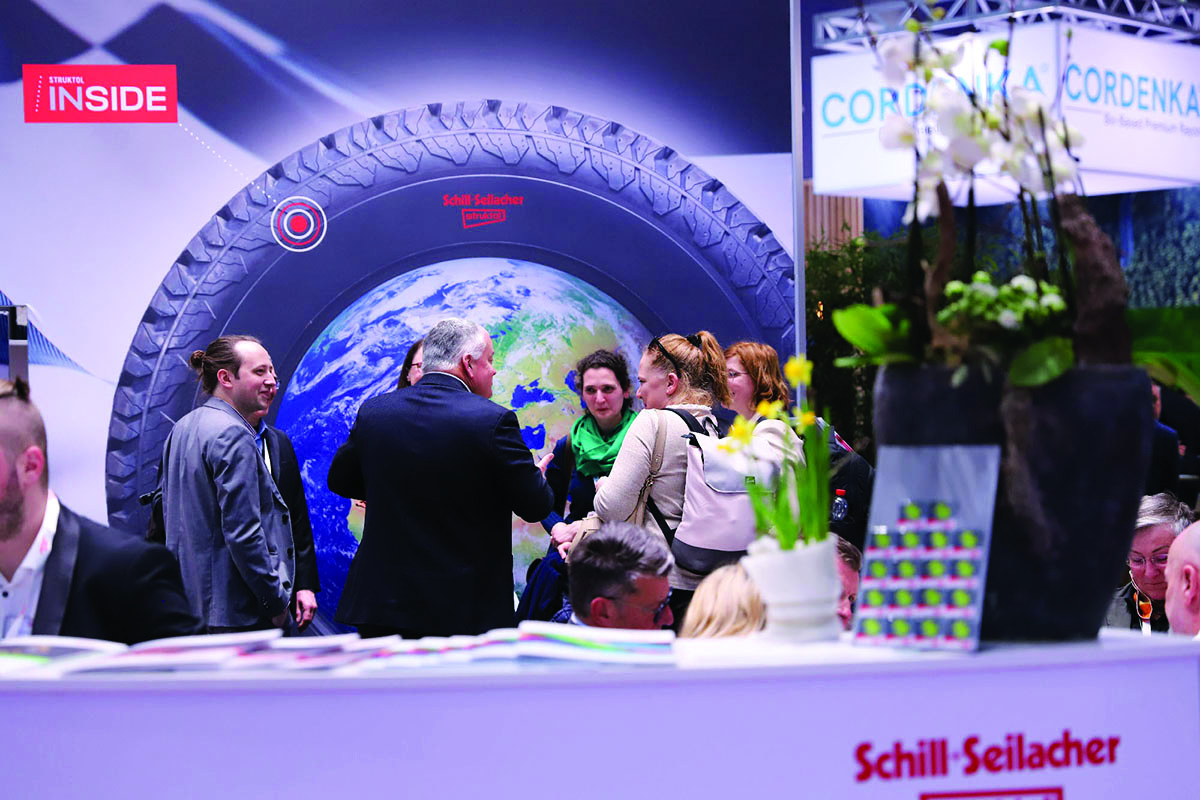 (ESPR). The regulation, enacted in 2024, aims to increase supply chain transparency by mandating that products carry a permanent, readable identifier usable throughout their life cycle. Michelin is already testing the programme in various industries, such as textiles, electronics and automotive components, with the cooperation of French, German and Swedish stakeholders.
(ESPR). The regulation, enacted in 2024, aims to increase supply chain transparency by mandating that products carry a permanent, readable identifier usable throughout their life cycle. Michelin is already testing the programme in various industries, such as textiles, electronics and automotive components, with the cooperation of French, German and Swedish stakeholders.
The ESPR system, Fioretti characterised as an ‘ambitious information system’, will enable the maker, the recycler and the buyer to make environmentally informed decisions. She stressed that the movement is not so much about compliance as a transition towards the principles of the circular economy. By 2027, by the time broad adoption of the ESPR sets in, product design may improve, recycling efficiency will be elevated and buyers’ confidence will be boosted in second-hand markets.
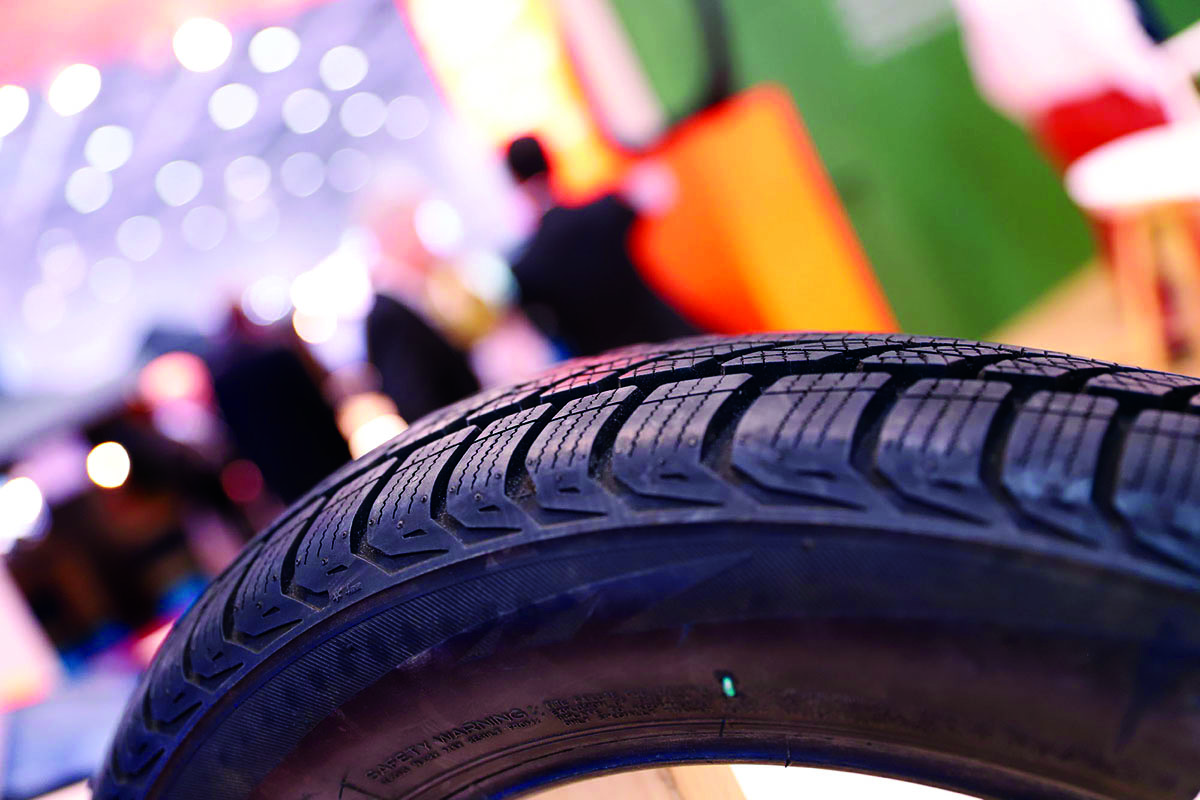
MANUFACTURING INNOVATION AND AI TECHNOLOGY
The event showcased the latest digital manufacturing solutions to enhance efficiency, lower waste and better quality control. Rockwell Automation launched AI-driven tools to optimise tyre production, including digital thread technologies for tracking data without interruption through various manufacturing processes.
Black Donuts launched its Digital Twin Tyre Plant Simulation, a cutting-edge real-time virtual modelling tool that aids manufacturers in minimising downtime and optimising production. The company’s methodology involves end-to-end finite element analysis, enabling accurate tyre performance simulations before production.
HF dominated the manufacturing technology market with its state-of-the-art electric tyre curing presses. The company illustrated how its new electric curing technology could be applied to new and retrofit installations to minimise energy consumption and enhance process efficiency. Fischer TireTech exhibited computerised cord-cutting lines and premium extrusion technologies aimed at increasing accuracy in tyre production.
Uzer Makina launched a high-end electric tyre curing press focused on energy efficiency and precision production. ARP Technologies showcased its Electromagnetic Heating (EMH) curing system, a more energy-efficient curing process, alongside an artificial intelligence-based inspection machine that can spot tiny defects with great accuracy.
KraussMaffei featured its multiplex extrusion technology, which enhances first-time production quality and eliminates material bleeding during tyre formation. The company showed a new head clamping technology that maximises channel cleaning effectiveness, further expanding the limits of green manufacturing.
REGULATORY DEVELOPMENTS AND ENVIRONMENTAL CONSIDERATIONS
Regulatory matters were on the agenda at the expo, with leading experts discussing the changing scene for tyre production and green compliance. Adam McCarthy, Secretary General of the European Tyre and Rubber Manufacturers’ Association (ETRMA), gave a definitive overview of recent European Commission regulatory interventions impacting the sector.
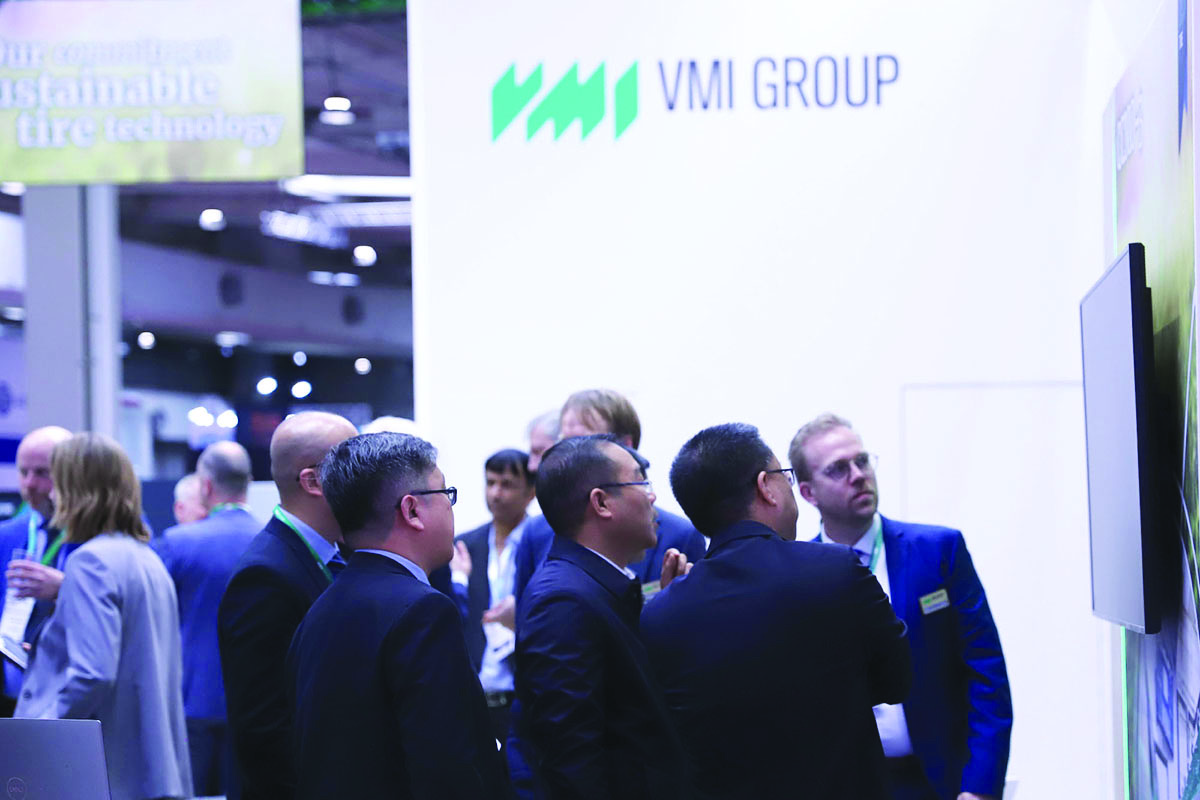 A specific session on Tyre and Road Wear Particles (TRWP) collaborated with industry experts from Bridgestone, Continental and Michelin, as well as leading research institutions, to address the implications of future Euro 7 regulations. It was centred around reducing tyre wear’s environmental footprint without compromising performance levels.
A specific session on Tyre and Road Wear Particles (TRWP) collaborated with industry experts from Bridgestone, Continental and Michelin, as well as leading research institutions, to address the implications of future Euro 7 regulations. It was centred around reducing tyre wear’s environmental footprint without compromising performance levels.
FUTURE OUTLOOK AND INDUSTRY COLLABORATION
During the three-day conference, experts worldwide exchanged information, delved into future technologies and worked on crafting the mobility of the future. The event highlighted reducing carbon footprint, improving safety and customising solutions for future electric and self-driving cars.
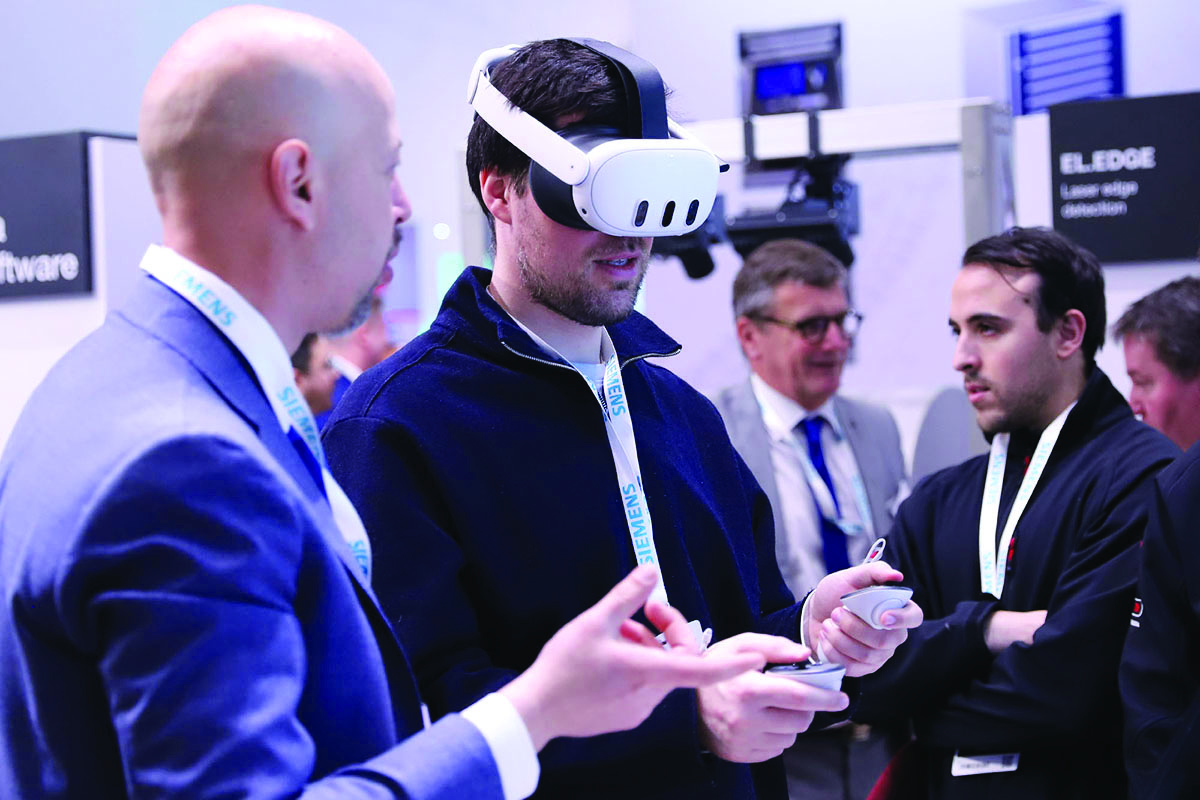
The next edition will be held on 3 and 4 March 2026.
TIRE TECHNOLOGY INTERNATIONAL AWARDS FOR INNOVATION AND EXCELLENCE
A key highlight of the event was the prestigious Tire Technology International Awards for Innovation and Excellence 2025. Recognising achievements across 12 categories, the awards celebrate the latest advancements in tyre technology, progress towards a more sustainable industry and the outstanding contributions of individuals driving innovation. This year’s winners are as follows:
Goodyear bagged Environmental Achievement of the Year – Tire Design for its ElectricDrive Sustainable- Material (EDS) tyre.
Continental was awarded the Environmental Achievement of the Year – Manufacturing award for its CO2-neutral tyre production at the Lousado plant in Portugal.
Nokian Tyres won the Environmental Achievement – Industry Contribution award for its inauguration of the world’s first full-scale tyre factory with zero CO2 emissions in Oradea, Romania.
Bekaert received the Materials Innovation of the Year award for its next-generation reinforcement solution, Mega Tensile.
Sumitomo Rubber Industries won the R&D Breakthrough of the Year award for its Active Tread technology.
VMI was awarded for Tire Manufacturing Innovation of the Year award for its integrated quality monitoring for the MAXX and MILEXX platforms.
ARP Technologies was selected as Industry Supplier of the Year for its many innovations in the tyre curing sector.
Bridgestone bagged Tire Concept of the Year for its Lunar concept tyre.
Michelin was awarded Tire of the Year for its Primacy 5 tyre.
Continental won the Tire Manufacturer of the Year award for the fourth time, acknowledging the scale and breadth of the company’s achievements over the last year.
Two further awards were also given for individual achievements in the industry:
Katerina Filzer, a PhD student at Twente University in the Netherlands, was awarded the 2025 Young Scientist Award for her presentation, ‘An Innovative Method to Incorporate a Devulcanization Aid into Rubber’.
Anke Blume, head of elastomer technology and engineering at the University of Twente, received the Lifetime Achievement Award for her outstanding contributions to the tyre industry.
GRI Appoints Eldo Verhaagen To Lead Benelux Material Handling And Agriculture Operations
- By TT News
- March 03, 2026
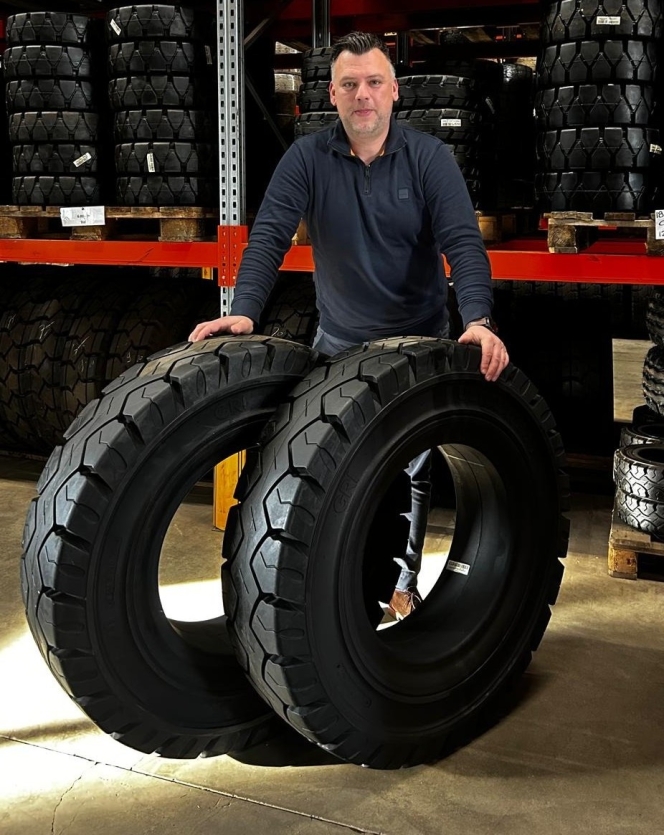
GRI, a leading producer of speciality tyres from Sri Lanka, has named Eldo Verhaagen as its new Sales & Operations Director for Material Handling and Agriculture across the Benelux region. This strategic move underscores the company’s drive to enhance its regional footprint by reinforcing leadership, improving operational efficiency and strengthening relationships with local customers. Verhaagen’s arrival marks a continued push to expand GRI’s presence in both the material handling and agricultural sectors.
With extensive experience in the tyre and automotive fields, Verhaagen brings a proven background in guiding strategy, boosting commercial performance and refining operational processes. His familiarity with a broad range of tyre types – including those used in trucking, farming, construction and material handling – combined with a direct, customer-oriented working style, makes him well-suited to steer the region through its upcoming growth phase.

Verhaagen takes over from Herman Klumpenaar, whom GRI has thanked for his dedicated leadership and smooth handling of the leadership transition. The Benelux team is now set to collaborate closely with Verhaagen, aiming to sustain regional progress and ensure long-term, steady development.
Giorgio Gramegna, Director of Europe – Sales, Marketing and Distribution at GRI, said, “We thank Herman for his leadership and contribution over the years. We are pleased to welcome Eldo and are confident that his experience and market knowledge will further strengthen our presence and performance in the Benelux region.”
Goodyear Launches ‘The Vault’ Online Marketplace
- By TT News
- March 03, 2026
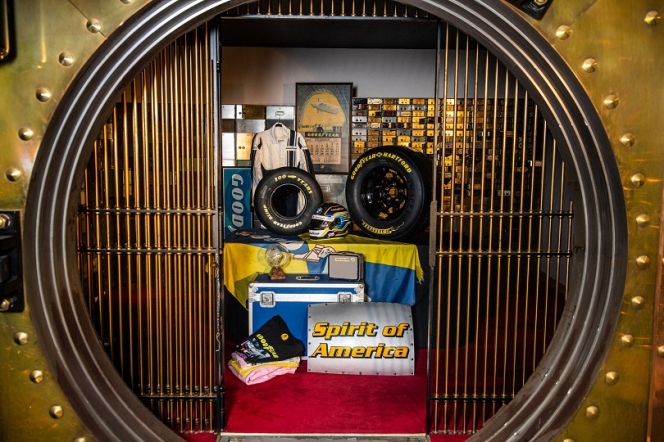
Goodyear has unveiled The Vault, an innovative online marketplace designed to transform how the public interacts with its brand and 128-year heritage. This digital destination allows visitors to explore and acquire a thoughtfully assembled selection of historic artifacts, autographed collectibles, special-edition products and extraordinary experiences. Serving both as a platform for collectors and a dynamic archive, The Vault merges significant items from Goodyear's past with contemporary cultural partnerships and exclusive new merchandise.
The collection features compelling pieces such as a segment of the engine from the legendary Spirit of America Goodyear Blimp, one of the company's earliest tyres produced in 1899, tyres raced at the 2025 NASCAR Cup Series Championship and celebrity-signed goods. To celebrate the launch, a limited-time digital puzzle is being offered. Participants who successfully solve the riddle on the company website will be entered to receive one of 30 cryptex vaults filled with exclusive prizes. These rewards range from branded merchandise to the premier prize: a private flight on the famous Goodyear Blimp. The Vault is currently accessible, with plans to release new items and opportunities throughout the coming year.



Doug Grassian, Vice President, Global External Communications, Social Media and Partnerships, said, "There's nowhere else on the planet that you can buy a section of a Goodyear Blimp engine or one of the first tyres ever made. By opening The Vault, Goodyear is transforming its legacy into something tangible, collectible and meaningful."
- Nokian Tyres
- Nokian Tyres Hakkapeliitta 01
- Studded Winter Tyres
- Winter Tyres
- On-Demand Grip
- Temperature-Adaptive Stud Technology
Nokian Tyres Reinvents Winter Driving With Temperature-Adaptive Stud Technology
- By TT News
- March 02, 2026
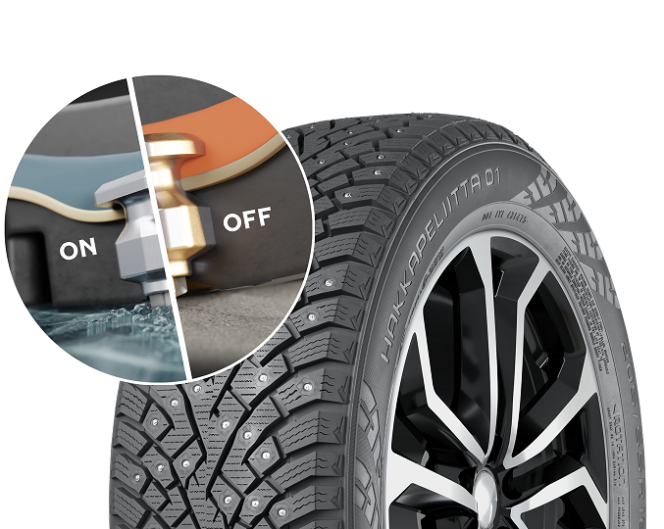
Nokian Tyres has unveiled a groundbreaking innovation in winter driving: the world’s first studded winter tyre capable of automatically adapting to temperature shifts. Named the Hakkapeliitta 01, this new product marks a significant milestone for the company, which originally invented the winter tyre in 1934 and introduced the legendary Hakkapeliitta line 90 years ago in 1936. This latest evolution fulfils a longstanding ambition to create a studded tyre that can respond dynamically to changing road conditions.
At the heart of this development is the patented Double Action Stud Technology, which enables what the company calls On-Demand Grip. This system allows the studs to automatically toggle between two modes depending on the temperature. When activated, the studs provide maximum safety and powerful traction on icy and snow-covered surfaces, offering drivers complete confidence in severe winter weather. Conversely, when the system deactivates, the tyre delivers precise handling on bare, dry roads while minimising road wear. This dual functionality ensures a stable and accurate driving experience, effectively addressing the primary concerns of studded tyre users: noise and surface wear.
The Hakkapeliitta 01 is engineered for passenger cars, crossovers and SUVs and carries both the Three-Peak Mountain Snowflake and Ice Grip certifications, underscoring its severe winter weather credentials. The technology represents the fruition of a visionary concept first proposed by the company in 2014. Since then, extensive global research and development have taken place, involving thousands of prototypes tested in diverse environments, from indoor laboratories to the company’s Arctic test centre in Finland and its facility in Spain.


The result is a tyre that delivers measurable improvements across several key areas. Compared to its predecessor, it reduces road wear by up to 30 percent. Safety has also been enhanced, with ice grip improved by up to 10 percent and wet grip by up to five percent. Furthermore, noise levels have been reduced by as much as one decibel, contributing to a quieter and more comfortable journey. In line with a commitment to sustainability, the tyre’s tread compound incorporates renewable materials, including natural rubber, bio resin and bio-based oils derived from sources like pine resin and canola oil.
The new product range will be available to consumers in the autumn of 2026, with primary markets in the Nordic countries and North America. Production will take place at the company’s factory in Nokia, Finland. A conference call is scheduled for today (2 March 2026) at 4:15 p.m. EET, during which company leadership and winter tyre specialists will present the new tyre and answer questions. A recording of the event will be accessible online for the following twelve months.
Paolo Pompei, President and CEO, Nokian Tyres, said, “The new Nokian Tyres Hakkapeliitta 01 represents one of our company’s biggest innovations since we introduced the first winter tyre more than 90 years ago. This new winter tyre achieves what was previously thought impossible: a studded tyre that responds to temperature changes to deliver ultimate safety while protecting the road.”
Mikko Liukkula, Nokian Tyres Development Manager who oversaw the tyre’s years-long evolution from concept to reality, said, “With the new Nokian Tyres Hakkapeliitta 01, we set out to rethink what a studded winter tyre can be. We didn’t want to compromise between superior ice grip and low road wear, which is a common trade-off in winter tyre development. Instead of a compromise, we developed a solution where grip adjusts automatically to the temperature, delivering maximum safety when it’s needed and more controlled, gentler road contact when it’s not. This helps drivers account for winter weather that is less predictable than ever, while navigating new regulations related to tyres’ impact on the road.”
GRI Redefines Growth Through Sustainability And Specialisation In A Volatile Global Tyre Market
- By Nilesh Wadhwa
- March 02, 2026

As the global tyre industry grapples with volatility and intensifying competition, Global Rubber Industries ( GRI) is sharpening its focus on specialisation and sustainability-led innovation. By prioritising value over volume, the company is redefining how growth can be achieved in complex off-highway and agricultural segments.
The global tyre industry is navigating one of its most complex phases in decades. Slowing vehicle registrations, volatile commodity prices, geopolitical uncertainty and intensifying competition are forcing manufacturers to rethink where and how they compete.
For Global Rubber Industries (GRI), the Sri Lanka–based specialist tyre manufacturer, these challenges are not signals to retreat but catalysts to sharpen focus, deepen innovation and redefine value.
In an exclusive interaction with Tyre Trends, Barry Guildford, Global Commercial Director, GRI, said, “The last couple of years have been quite challenging. Particularly if you look at the OE sector, there’s been a real downturn in the number of new vehicles being purchased. Registrations are lower, farmers’ revenues are under pressure and cash flow is a problem.”
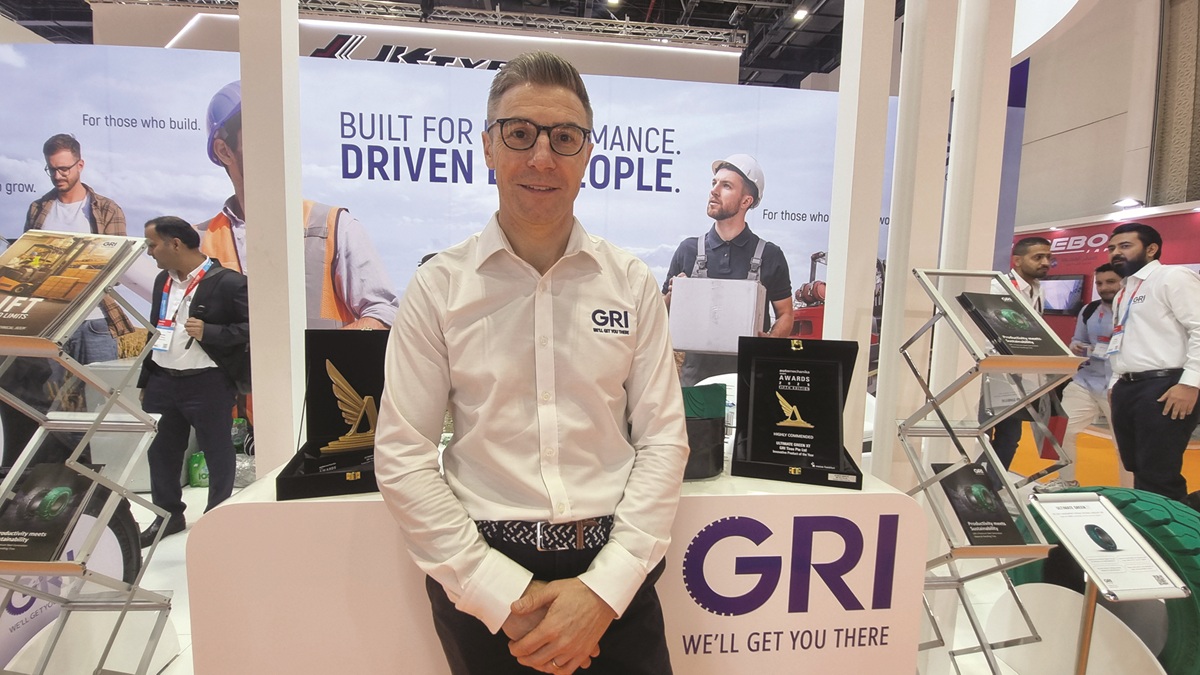 Yet, within this disruption, GRI sees opportunity – not in scale-driven volume plays but in specialised segments, sustainability-led innovation and solutions that lower total cost of ownership for customers.
Yet, within this disruption, GRI sees opportunity – not in scale-driven volume plays but in specialised segments, sustainability-led innovation and solutions that lower total cost of ownership for customers.
A TOUGH CYCLE BUT CLEAR SHIFTS IN MARKET DIRECTION
Guildford describes the past 12 to 18 months as a period marked by belt-tightening across key end-user industries, particularly agriculture.
“When you see commodity markets for certain crops, it’s impacting revenues from the farmers. There are fewer subsidies available from regional authorities, so generally speaking, it’s been a tough 12 to 18 months,” he explained.
However, beneath the surface, the aftermarket is undergoing important structural shifts. Automation is accelerating across agriculture, while electrification is reshaping material handling.
“At Agritechnica, we saw a lot of automated driving vehicles being launched in the agricultural space,” Guildford noted. “There’s also a trend towards more VF (Very High Flexion) tyres, which is a positive trend for the industry.”
On the industrial side, electrification is no longer niche. “In material handling, especially forklifts, electrification is definitely playing a role. Traditional forklift manufacturers like Linde or Hyster are being challenged by new players from Asia offering electric solutions,” he said.
For tyre makers, these trends demand more than incremental upgrades. “The status quo in the automotive industry is completely shifting, Earlier, Chinese brands had limited penetration in global markets. Now you see many more players entering, especially in developed markets,” Guildford explained.
While this increases choice for customers, it also intensifies competition. “For us as a manufacturer, these are competitors. So it’s even more important that we focus on innovation and solutions,” he said.
SPECIALISATION OVER SCALE: LEARNING FROM INDUSTRY CONSOLIDATION
Recent years have also seen significant consolidation across the global tyre industry, with legacy players divesting businesses to concentrate on core segments. Guildford views this as part of a broader cyclical pattern.
“Many changes in the industry happen in cycles. If you look back 10 or 15 years, premium manufacturers invested heavily in the OHT space. Now some are divesting again,” he said.
In his assessment, complexity has become a decisive factor. “The OHT sector is extremely complex. There are solid tyres, pneumatic tyres, radial tyres and an unbelievable number of combinations in agriculture between tyres and rims,” he said.
This complexity, he believes, has worked in favour of focused specialists. “If you look at the premium sector’s performance in OHT, it’s clear they are losing ground to tier-two players and companies like ours,” he averred.
The reason is simple. “At the end of the day, you need to focus on where you can make money – where the value is. Large manufacturers have enormous divisions focused on PLT, UHP and truck tyres. These are high-volume, high-margin businesses,” Guildford added.
By contrast, specialist segments require deep technical expertise and sustained investment. “That’s why you’re seeing mainstream manufacturers focus more on their core channels, while specialists like GRI double down on OHT and agriculture,” he said.
For GRI, this focus is deliberate. “We are not trying to be everything to everyone. We are building leadership in the segments where innovation really matters,” Guildford said.
SUSTAINABILITY AS STRATEGY, NOT SLOGAN
Few topics have been as overused – and misunderstood – as sustainability. For Guildford, the difference lies in execution. “At first, sustainability was a buzzword. Everybody had to say they were sustainable. But now it’s being taken seriously,” he said.
At GRI, sustainability is not an add-on. “It’s in our DNA. It’s how we differentiate ourselves in a crowded market,” Guildford asserted. That commitment was recently recognised when GRI’s sustainable tyre won multiple international awards, including at ProMAT in Chicago and Automechanika Dubai. “Five or six years ago, we asked ourselves how we could create space in a crowded market. We decided to go on a sustainability journey,” he recalled.
The result was a tyre containing 93.5 percent sustainable materials, designed initially for material handling. “You never know how successful a product will be until you launch it. You design it, test it, evaluate it, place it with end users and then you get feedback,” Guildford admitted.
Winning the ProMAT award was a turning point. “That gave the company a massive boost in confidence. It showed that our R&D had developed something special,” he said.
Automechanika Dubai amplified that recognition. “Here, we are up against the world’s best manufacturers. And yet, a small entrepreneurial company from Sri Lanka has produced the world’s best tyre,” Guildford said.
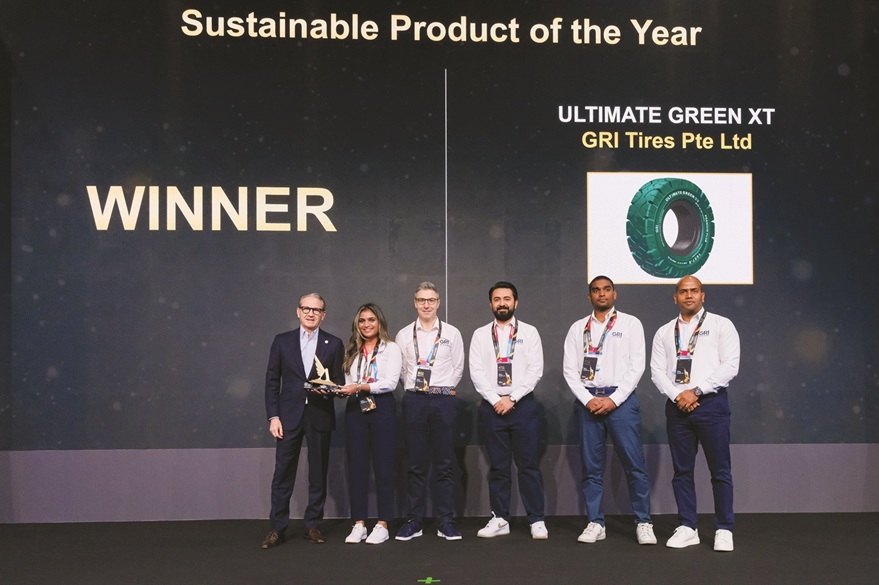 GRI won Sustainable Product of the Year and was runner-up for Innovation of the Year. “That is fantastic recognition. Not once, not twice, but three times,” said Guildford.
GRI won Sustainable Product of the Year and was runner-up for Innovation of the Year. “That is fantastic recognition. Not once, not twice, but three times,” said Guildford.
SELLING VALUE IN A PRICE-SENSITIVE WORLD
Despite the accolades, selling sustainable products in a cost-conscious market remains challenging.
“Sustainable tyres are not cheaper to produce. They are more expensive,” Guildford said candidly.
With higher material and process costs, GRI’s green tyre commands a premium. “You can’t bring it to market at the same price level,” he explained.
So why do customers buy it?
“Because you have to sell value. If you try to sell on price, you will always lose. There will always be someone cheaper,” Guildford replied.
The value proposition rests on performance and measurable impact. “This tyre reduces carbon emissions by 55 percent, certified by Bureau Veritas. It has 93.5 percent sustainable material, and most importantly, it performs better than a standard black tyre,” he explained.
When viewed through total cost of ownership, the equation changes. “If you compare operating costs, it’s actually the cheapest alternative. You pay more upfront, but you get it back in performance,” Guildford explained.
This mindset, he believes, marks a shift in customer behaviour. “If you always buy budget products, you never see the full benefit of premium solutions,” he said.
A FULL INNOVATION PIPELINE AND MEASURED CAPACITY EXPANSION
Looking ahead, GRI’s innovation roadmap is extensive. “We have two or three strategic roadmaps that we are working on,” Guildford revealed.
The sustainability journey is far from complete. “93.5 percent is amazing, but there is still room to go. Our R&D team is already working to push that beyond 95 percent,” he said.
In agriculture, the company is accelerating investment in advanced technologies. “At Agritechnica, we launched our steel-belted products. We will be heavily investing in steel-belted technology and VF going forward,” Guildford said.
Construction tyres are another focus area. “There are elements like L5 that we need to introduce, particularly for this (Middle East) region,” he added.
Behind the scenes, GRI is also reassessing its solid tyre portfolio and brand architecture. “The innovation pipeline is full,” Guildford explained.
Responding to the company’s production expansion plans, Guildford said that expansion will be disciplined rather than rushed.
“At the moment, we have room to grow within our existing infrastructure. We want to reach full capacity before thinking about a new plant,” he replied.
That said, growth may eventually necessitate expansion. “In a three-to-five-year timeframe, if all goes well, then yes, we may look at new facilities,” Guildford said.
As global tyre markets remain volatile, Sri Lanka’s GRI aims for clarity rather than speculative risk. By focusing on specialisation, sustainability and value creation, it is positioning itself not just to weather industry challenges but to reshape expectations within its chosen segments.
“Innovation is not optional anymore. It’s the only way forward,” Guildford concluded.







Comments (0)
ADD COMMENT